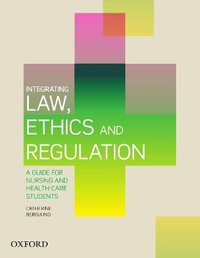
At a Glance
Paperback
$349.17
Aims to ship in 7 to 10 business days
ISBN: 9789048179312
ISBN-10: 9048179319
Series: International Library of Ethics, Law, and the New Medicine
Published: 25th November 2010
Format: Paperback
Language: English
Number of Pages: 252
Audience: Professional and Scholarly
Publisher: Springer Nature B.V.
Country of Publication: NL
Dimensions (cm): 23.39 x 15.6 x 1.35
Weight (kg): 0.36
Shipping
| Standard Shipping | Express Shipping | |
|---|---|---|
| Metro postcodes: | $9.99 | $14.95 |
| Regional postcodes: | $9.99 | $14.95 |
| Rural postcodes: | $9.99 | $14.95 |
How to return your order
At Booktopia, we offer hassle-free returns in accordance with our returns policy. If you wish to return an item, please get in touch with Booktopia Customer Care.
Additional postage charges may be applicable.
Defective items
If there is a problem with any of the items received for your order then the Booktopia Customer Care team is ready to assist you.
For more info please visit our Help Centre.
You Can Find This Book In
This product is categorised by
- Non-FictionMedicineOther Branches of MedicinePsychiatry
- Non-FictionLawLaws of Specific JurisdictionsSocial LawPublic Health & Safety Law
- Non-FictionLawJurisprudence & General IssuesJurisprudence & Philosophy of Law
- Non-FictionMedicineMedicine in GeneralMedical ProfessionMedical Ethics & Professional Conduct
- Non-FictionSociety & CultureEthical Issues & DebatesEthical Issues of Scientific & Technological Developments
- Non-FictionPhilosophyEthics & Moral Philosophy
- Non-FictionMedicineMedicine in GeneralMedical Equipment & TechniquesMedical Research
- Non-FictionMedicineNursing & Ancillary ServicesBiomedical Engineering
- Non-FictionScienceBiology, Life SciencesLife Sciences in GeneralBio-Ethics
- Non-FictionLawLaws of Specific JurisdictionsSocial LawMedical & Healthcare Law























